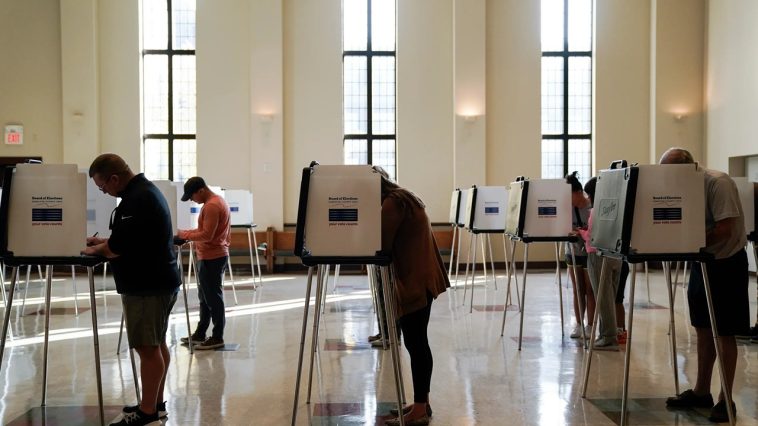U.S. District Judge Donald Nugent has upheld the constitutionality of Ohio’s rigorous voter identification law, rejecting a legal challenge against it. He determined the photo ID regulation introduced by the state does not pose anything more than a negligible burden on the overwhelming majority of the voting populace.
Judge Nugent clarified that the constitution does not grant voters an inherent right to utilize mail-in or early voting services. His ruling plays an important role in establishing legal clarity around state-level voting rules and their interpretation.
On the matters concerning the acquisition and submission of mail-in ballots, Judge Nugent noted that the rejigged timelines laid out by Ohio are more forgiving compared to the systems employed in 30 other states across the country.
In response to the assertion that limiting ballot drop boxes to a single location had severe repercussions on voters, Judge Nugent dismissed the claim, citing the implementation of such boxes was a recent development, enacted by the 2023 law. It was the first time Ohio had incorporated drop boxes into its voting system.
Although the introduction of a single drop box per county emerged from the state’s GOP-led legislature after years of heated disputes, this milestone decision constructs a new standard for future ballot accessibility discourse.
In the long historical saga leading to the 2020 general elections, a series of court rulings reprimanded Republican Secretary of State Frank LaRose for his directive that enacted the single box restriction. The courts termed the order both unreasonable and arbitrary.
Democrats, along with a broad spectrum of voting rights groups, had passionately argued for the installation of additional drop boxes, particularly in densely populated counties. Their objective was to streamline the voting process during the COVID-19 pandemic, providing an accessible platform for their constituents to safely participate in the democratic process.
In 2020, Democrats launched a legal challenge against the restriction. Following deliberation, a state appellate court concluded that Secretary of State LaRose had the legal authority to increase the number of drop boxes, even in the absence of further legislative approval.
The ruling, however, made clear that LaRose was not under any obligation to expand the number of ballot drop boxes. This left the final decision to his discretion, maintaining the status quo.
The 2023 law solidified the single-box restriction, addressing the issue head-on and for the first time. This new rule thus enters Ohio’s statute books, changing the landscape of voting accessibility within the state.
Nevertheless, Judge Nugent maintained that opponents of the 2023 law failed to construct a compelling argument in the case. His verdict has thereby held strong the rule of law, and affirmed the constitutionality and reliability of Ohio’s voter ID law.
This ruling highlights the importance of a robust electoral process sufficient to withstand legal challenges, while also ensuring the rights of the citizens to cast their votes freely and fairly. It is a significant development in the broader conversation around voting rights in the United States.
The continual evolution of Ohio’s voting laws, as seen through the lens of this case, demonstrates the enduring vitality of America’s democratic process. The ability of such laws to adapt while maintaining their fundamental tenets speaks to the strength of the constitutional system in place.


